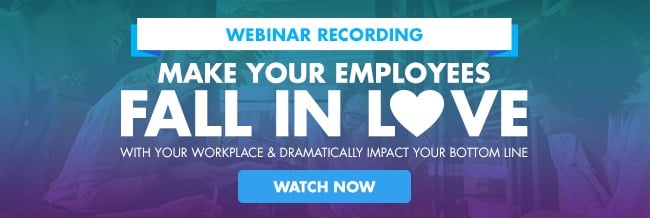Employee Engagement Surveys: 15 Telling Questions To Ask


You have a modern office design. You’ve recently upgraded your workplace technology. You’ve established a culture committee and employee wellness programs.
But you’ll never know if any of these things are actually having an impact on your employee experience unless you ask your employees.
Employee engagement surveys are a great way to take the pulse of your workforce and identify areas where you can improve. Although annual surveys are good for showing patterns and improvement from year to year, shorter, ongoing surveys shared via platforms like 15Five can also be telling. Ongoing surveys can help you identify potential issues before they become bigger problems.
Here are 15 great questions to include on your next employee engagement survey, courtesy of 15Five and other employee survey tools.
1. On a scale of 1 to 10, how happy are you at work?
Of course, not everyone is going to be eager to come to work every day. But if there’s a chronic lack of enthusiasm, that’s often a sign of a bigger problem.
2. What gives you a sense of meaning and purpose in your role?
This question is especially important for Millennials in the workplace, who tend to place a high emphasis on how their job contributes to their overall identity. If an employee can’t answer this, it could indicate a lack of employee engagement.
3. Do you believe in our company’s mission?
Employees who feel personally invested in the company’s overall mission and goals are generally more productive than employees who simply see their job as a means to a paycheck.
4. What three words would you use to describe our company culture?
Your company’s leadership team may have a vision of your ideal company culture, but the reality may look very different from an employee’s perspective. If employees use words like “stifling,” “frustrating” or “boring” to answer this question, it’s probably time to make some changes.
5. How often do you feel inspired to give your best when you’re at work?
If an employee is satisfied with their role, that may be enough to keep them around and meeting deadlines. But highly engaged employees are more than happy to go above and beyond the call of duty.
6. How often do you feel you receive appropriate recognition when you do good work?
A quick way to lose a good employee is to not acknowledge when they exceed expectations. If a high performing employee doesn’t feel you appreciate their hard work, they’ll look for an employer who will.
7. To what extent do you see your effort contributes to the overall success of the company?
No one wants to feel like just another cog in a wheel. To keep employees engaged, you must consistently show them their work matters and has an impact on the future of the company.
8. Do you see opportunities for growth and professional development here?
Alongside a sense of purpose from the job, professional development opportunities are high on the Millennial’s wishlist—but they’re just as important to everyone else. Managers should have ongoing conversations with their employees about how they can advance in their career.
9. To what extent do you feel there is open and honest communication between managers and employees?
No one likes being kept in the dark, especially about major changes in the company. Your leadership team should commit to being as transparent as possible about what’s going on in the organization.
10. Do you have access to the resources and information you need to do your job well?
An essential part of a positive employee experience is ensuring every member of the workforce has what they need to thrive in their position. That means being able to find colleagues, find and reserve rooms or equipment and knowing they’ll get a quick response to a maintenance issue.
11. What would help you be more productive?
Sometimes an open-ended question like this one can be telling. You might find some employees lack quiet space to concentrate, while others are frustrated with your workplace technology. Still others may just have a hard time connecting with team members, especially in an agile work environment when employees are encouraged to move around frequently.
12. Are you proud to say you work here?
When an employee declares where she works with pride, it demonstrates to others (including top talent) that being hired at your company is an accomplishment.
13. Do you feel you can trust your colleagues and rely on them?
This question serves double-duty. If an employee says no, it’s a sign that the employee is either not a good fit for their team or there’s a broader issue within the team. Either way, it’s a conversation that needs to take place.
14. Would you refer someone to work here?
This question gives you insight into the quality of the employee experience you’re providing. If an employee is happy and engaged, she’ll want others to have the same opportunity to be happy and engaged.
15. If you were given the chance, would you reapply to your current job?
This is the most telling question on this list. After an employee has had enough time to see the good, the bad and the ugly of the company, if she’s willing to go through the headaches of applying for the job again, she’s in it for the long haul.
Employee engagement surveys are an important source of feedback between your workforce and your management team. Based on the findings from your survey, you may find you need to make changes to your office design, technology or company culture—all important factors that impact the employee experience.
What questions do you think should be added? Let us know on Twitter, Facebook or LinkedIn!
